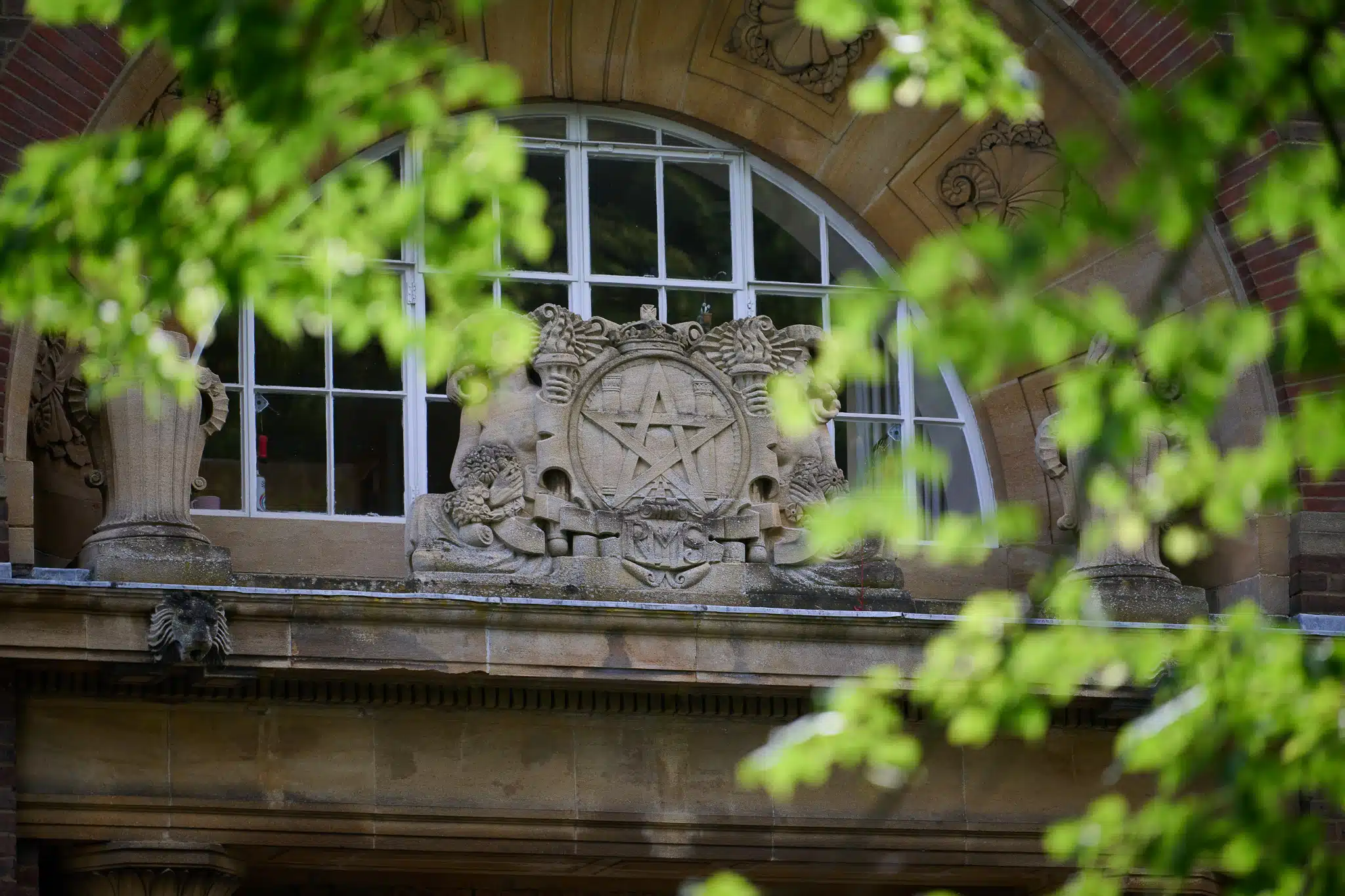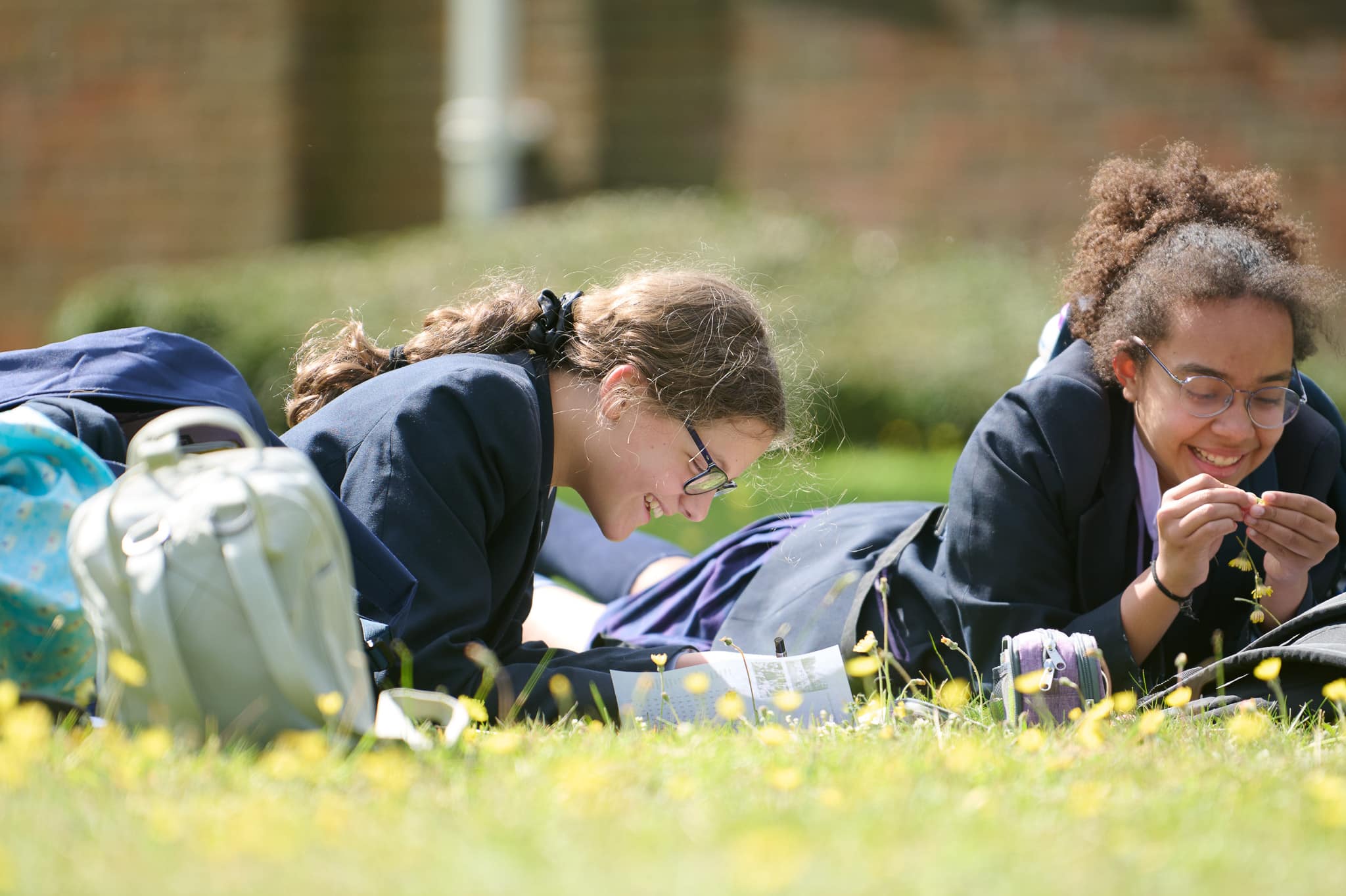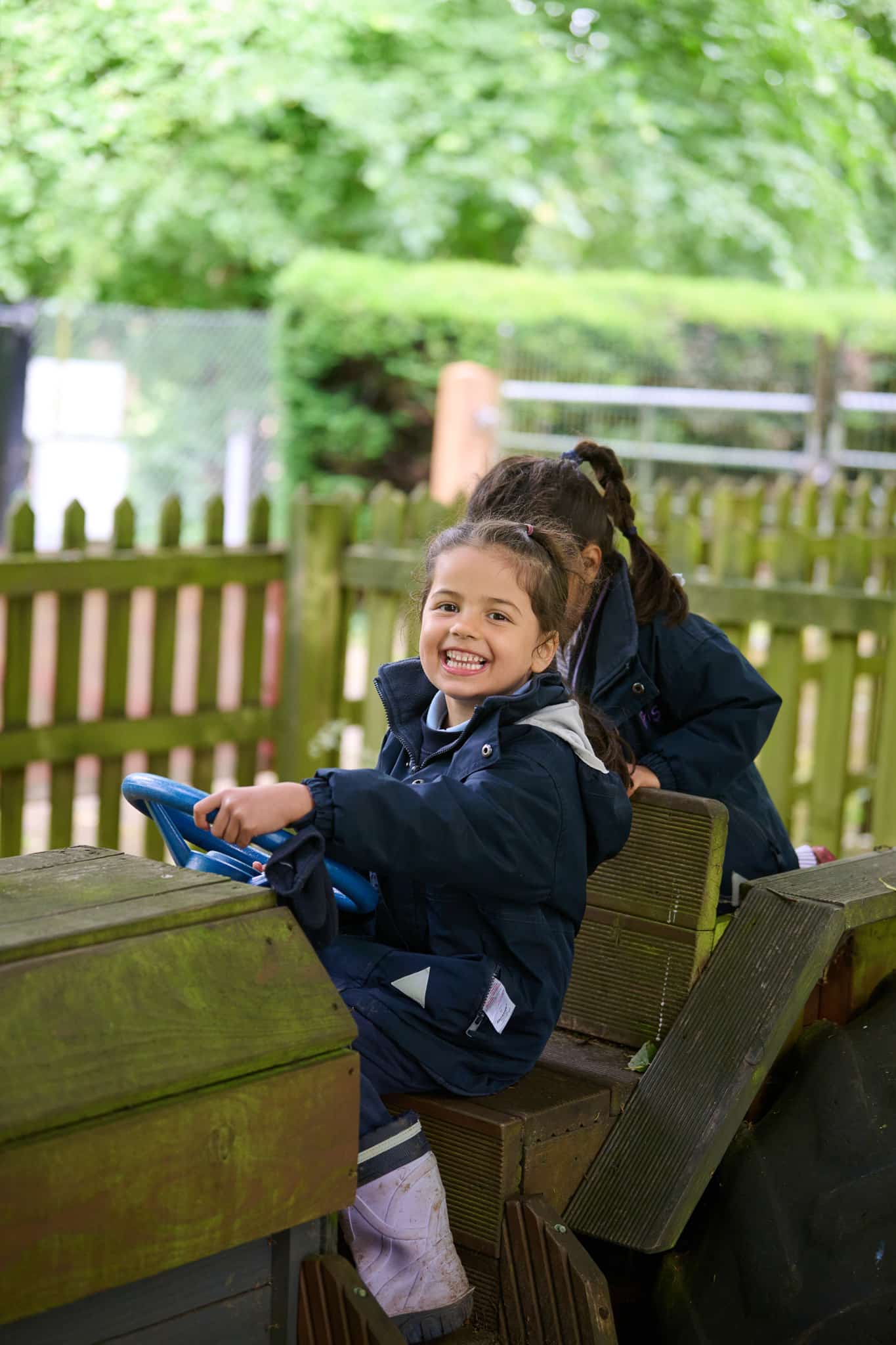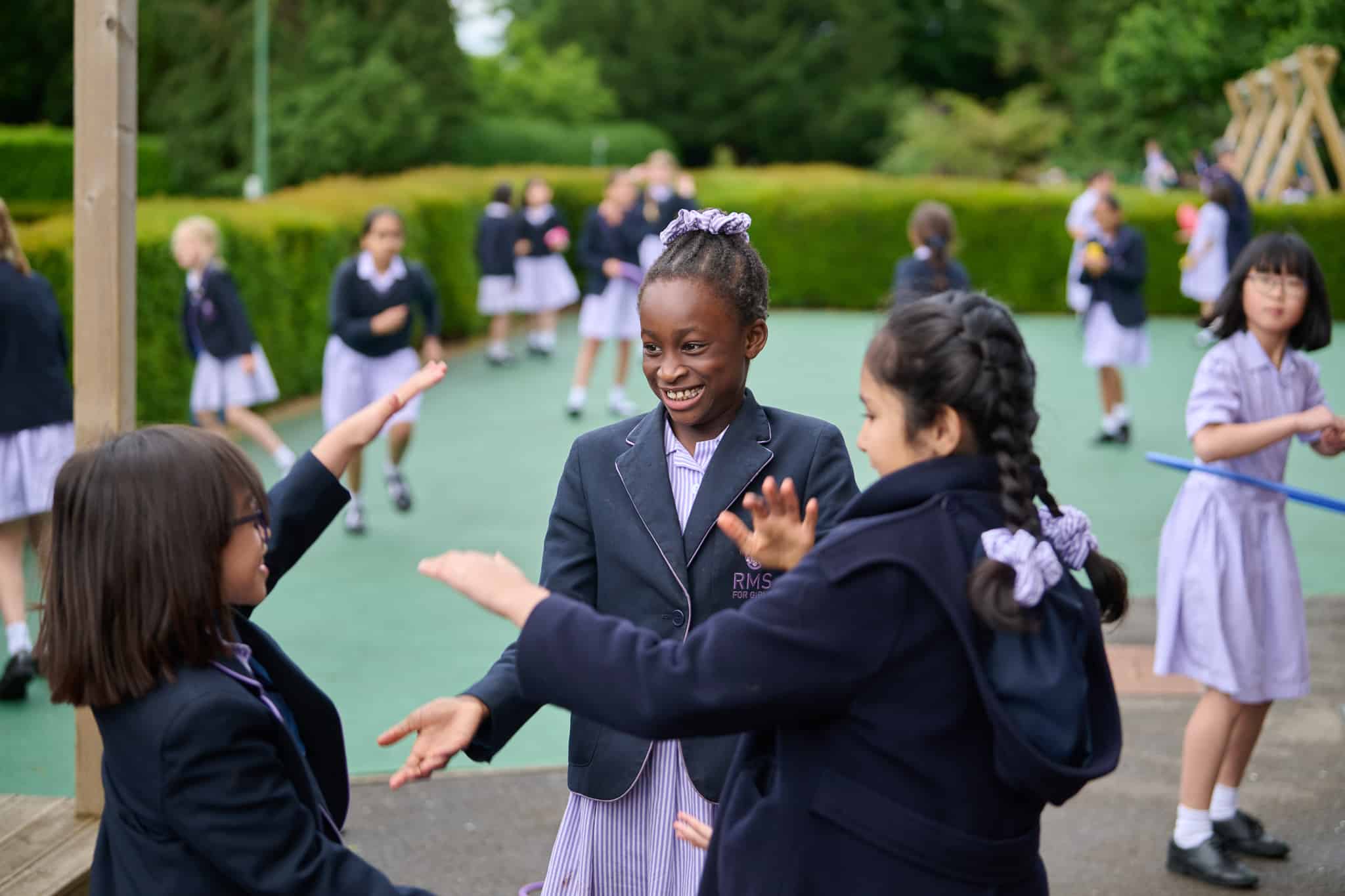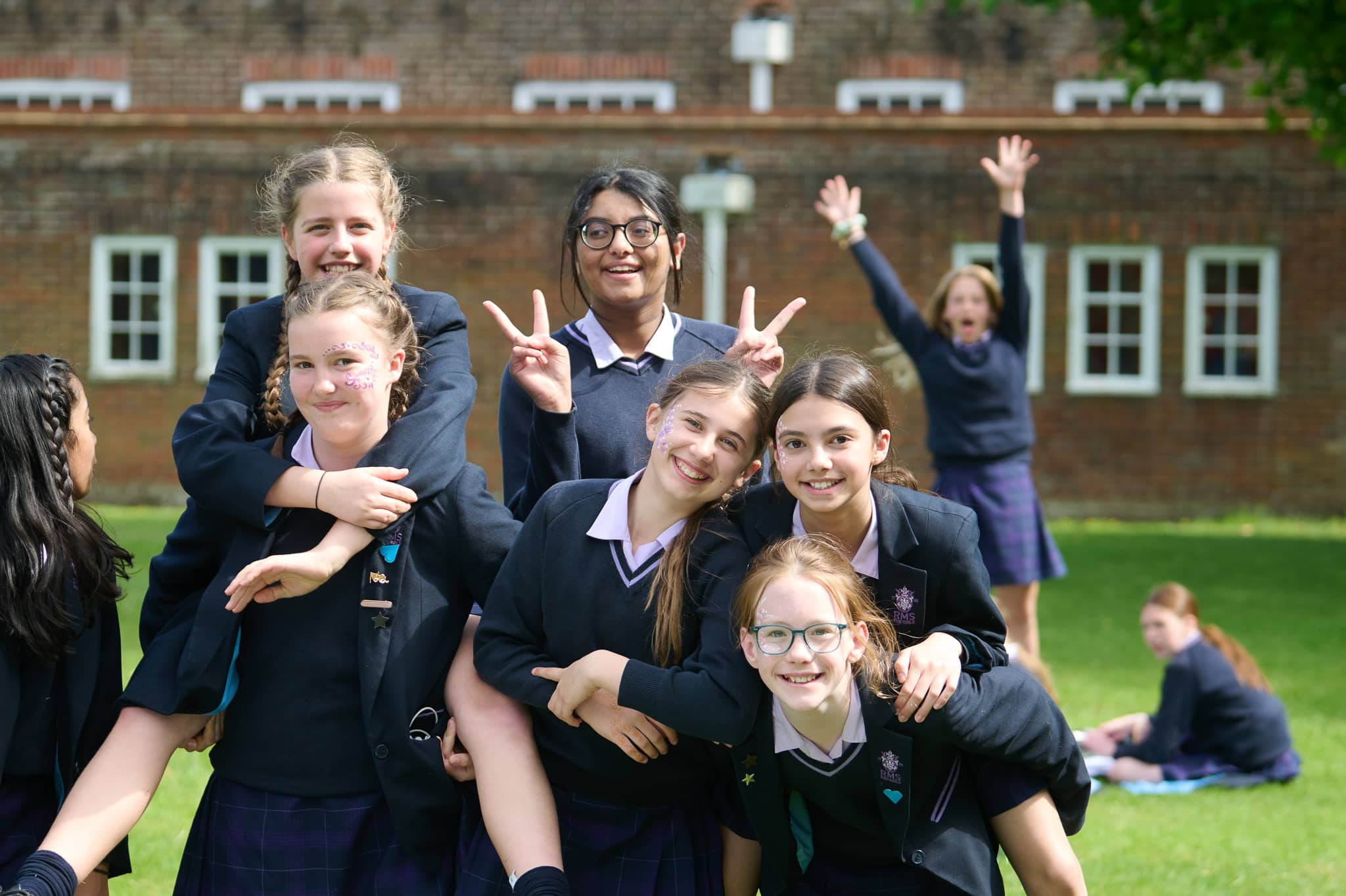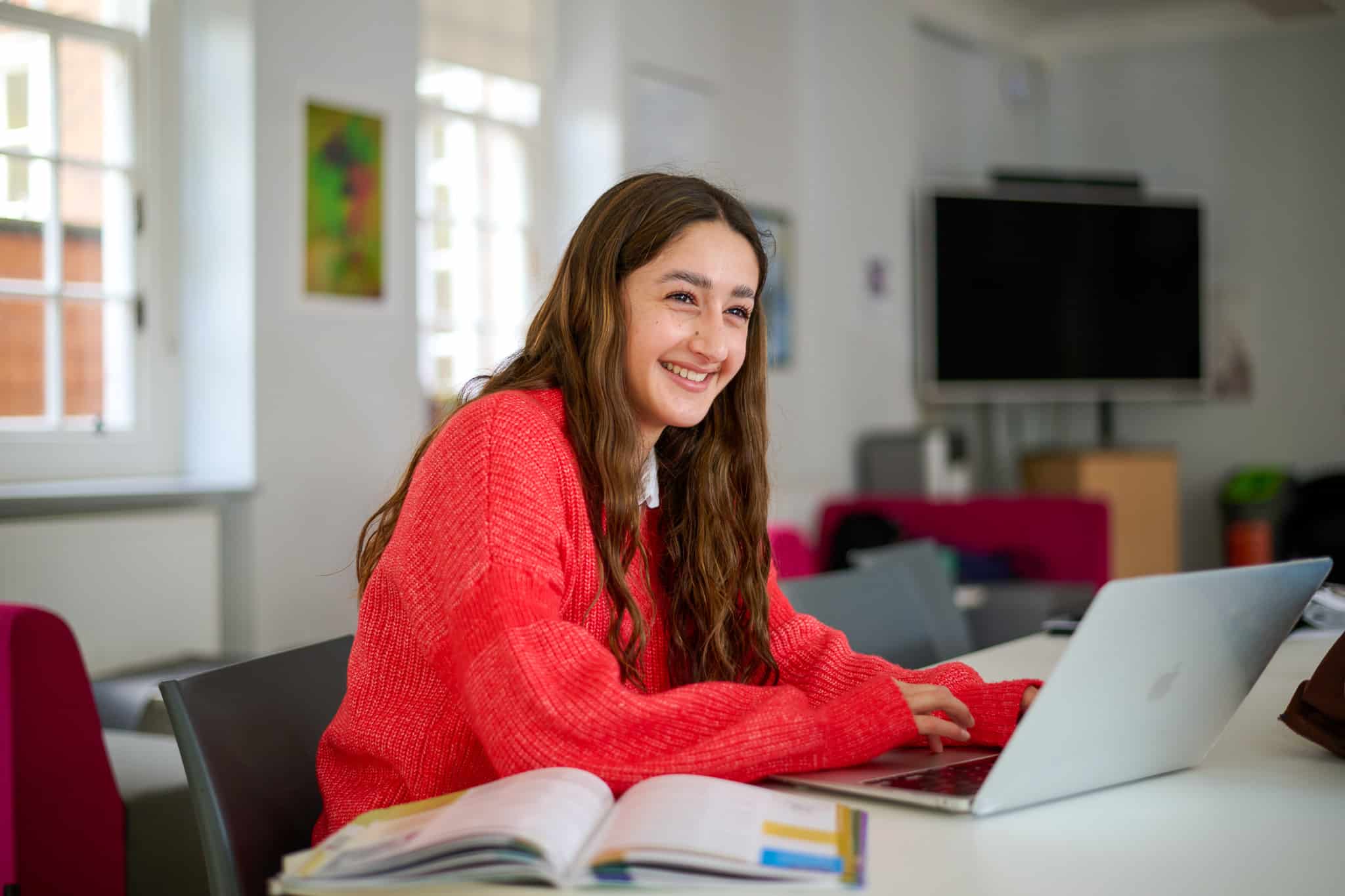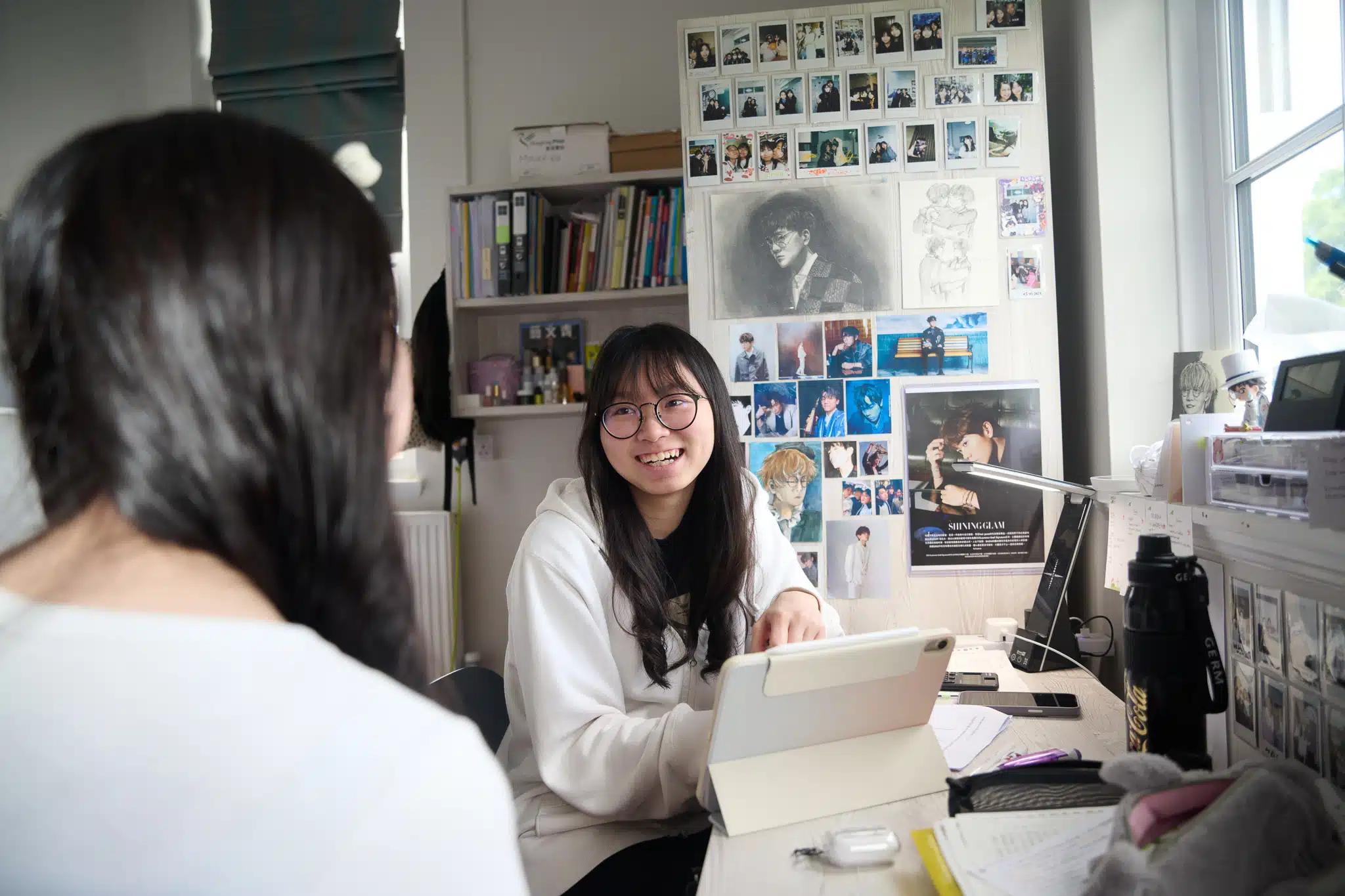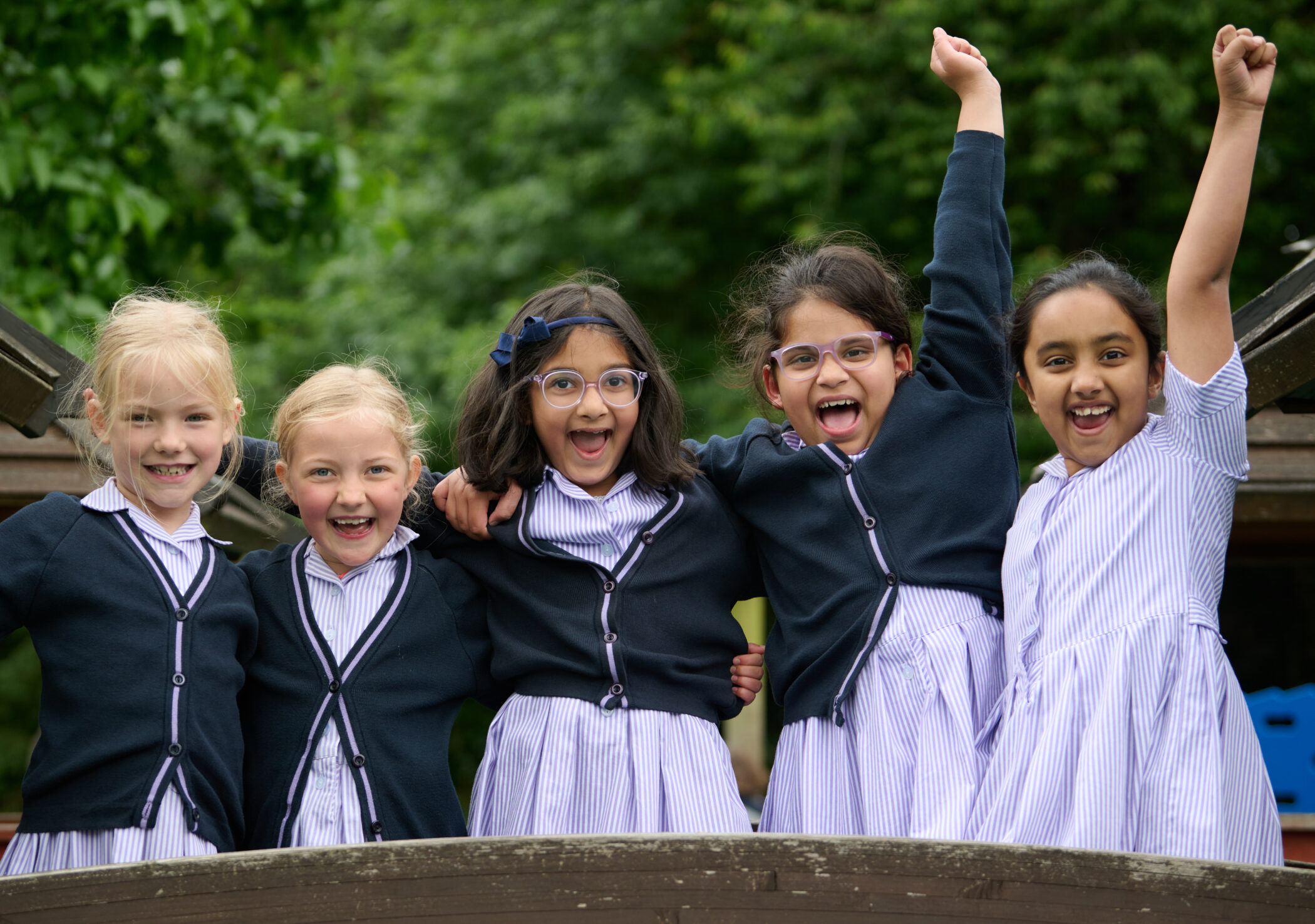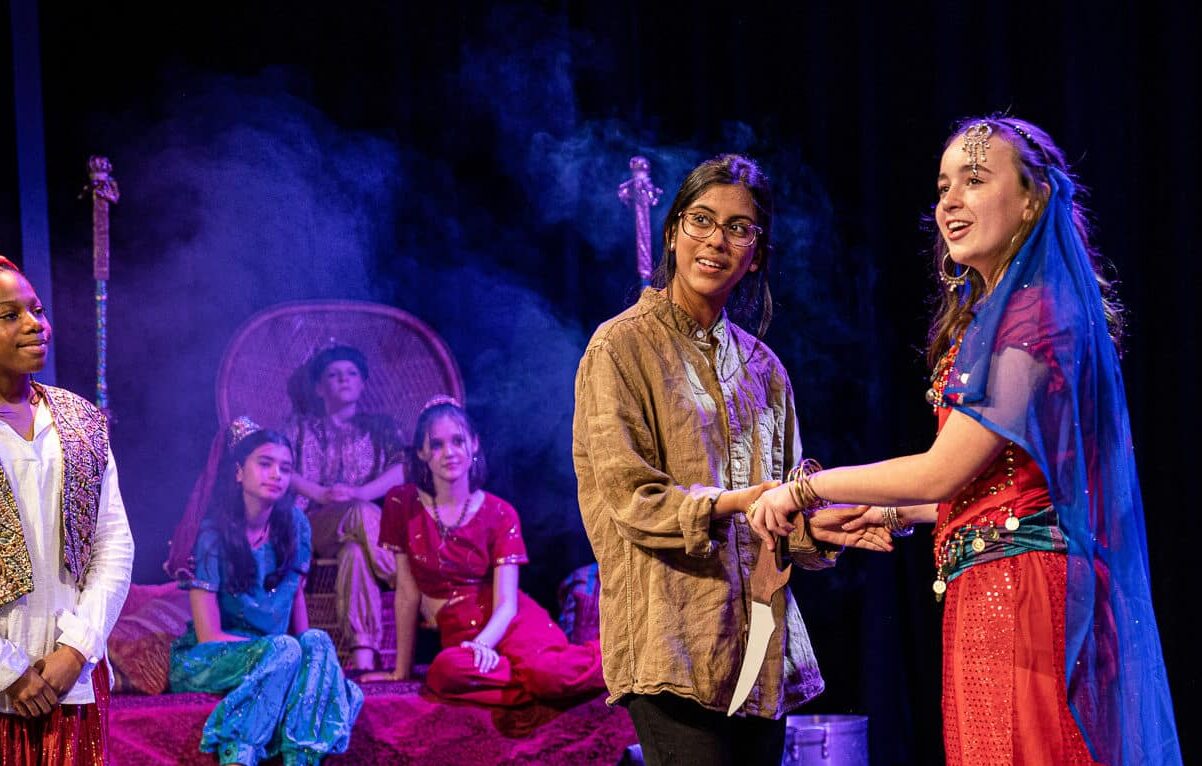On Friday, September 27th, we released the first episode of our brand new school podcast, Stirred By The Sun. The episode featured a fascinating discussion with our podcast hosts, Mr Carson, Aleesa, and Sarisha, and special guests Mrs Greig, Head of Ruspini House, and Mrs Baker, Head of Early Years at Cadogan House, about the often overlooked world of Early Years education.
This episode highlights the immense impact of the early years on a child’s development. From the importance of play-based learning to the challenges of settling young pupils and advocating for investment in Early Years, this conversation offers valuable insights for educators, parents, and anyone passionate about shaping young minds.
Read the full interview with Mrs Greig and Mrs Baker below, and don’t forget to listen to the podcast on Spotify or directly through our website for the full experience.
Aleesa:
We thought we would start this podcast by hearing about our youngest pupils at RMS – the two to four-year-olds educated in our preschool Ruspini House, and in our reception class in our Prep School, Cadogan House. We are joined by the Head of Ruspini, Mrs Greig, and our Head of Early Years in Cadogan, Mrs Baker.
Sarisha:
Why is early years education so important?
Mrs Baker:
We know that the first five years of a child’s life have the greatest impact on their long-term learning, with the fastest rate of growth of all areas of learning taking place in those first five years, whether it’s physical, cognitive, or behavioural. It’s really important that we get things right, right at the beginning. It’s a big responsibility!
Mrs Greig:
It is a huge responsibility. 80% of brain development happens in those first five years, which is huge. We are the architects, alongside parents, of these children’s brains, and I think that’s very important to consider.
Mr Carson:
For us as teachers and those working in education, so often the Early Years are not at the forefront of people’s thinking. How do you feel about that?
Mrs Greig:
For me, the investment is completely the wrong way around. The resources and the funding are put into the top end, but if we do it earlier then children may not necessarily have the challenges and issues that they would face later on. Their brain, their self-regulation, everything is then geared up to manage life and build their resilience. It’s much more difficult to change things once the architecture of the brain has been built.
Mrs Baker:
All of those skills are best learned through play, and so our curriculum is play-based for a reason. Later on in life, we can think of play as something that’s not important. We absolutely know that this is how children learn vital skills for their future learning, such as resilience, turn-taking, self-discipline, and tolerance.
Mrs Greig:
I was reading a quote this morning; “Depriving children of play is the biochemical equivalent of starving them.” That was from Ben Kingston-Hughes. I think that is so true!
Mrs Baker:
It’s very, very true. There has been some research undertaken last year showing that children who have had a longer time in an Early Years setting will have better future outcomes. I think things are changing, and I think the world is getting it more, but certainly, I think there is a long way to go in understanding how important Early Years education is.
Mrs Greig:
Particularly in this country. In lots of other countries, formal learning doesn’t start until the age of seven. We’re lucky in this school environment, but within the Early Years profession as a whole, there’s a lot of fight to make sure that we protect those early years.
Mrs Baker:
I think [the importance of learning through play] is something that we knew as far back as 100 years ago when Piaget was doing his research – we knew that young children learn much more in this concrete way. They need to touch and feel things. Abstract learning isn’t going to be as appropriate. It’s crystal clear that learning through play is so important.
Listen to the full episode via Spotify, or continue reading the interview below.
Aleesa:
Recently, I have particularly related to the difference in how much investment is put into the younger years. I didn’t realise how important Nursery was, and the key skills that you develop. I’ve since spoken to both of you about my DT NEA project, which is focussed on Early Years education. It’s been important to notice the differences.
Mrs Baker:
When you were in those settings, what was it that you were noticing?
Aleesa:
The main thing I noticed was the children’s independence, which forms the main part of my project. It’s not just about the colourful, bold, overstimulating parts of the classroom but more about the subconscious skills the children are gaining. Putting Play-Doh in a cupcake liner and acting out what their family is doing at home – it’s something that’s relatable. They’re really settled in both environments, Cadogan and Ruspini, which is something that I also noticed.
Mrs Baker:
That’s lovely that you noticed that. That’s so important. Making those links with home is exactly what they’re doing there. They’re building that understanding through observing what they’ve done at home and repeating it.
Aleesa:
What were your journeys like towards becoming Early Years specialists?
Mrs Baker:
It’s a second career for me. It wasn’t until I had children of my own that I started to become interested in child development. I decided that I’d like to become a learning support teacher, and then decided that I wanted to go one step further. I wanted to teach, and I wanted to teach Year 2, that’s what I wanted to do, to begin with. As part of my training, I spent a block of time in Early Years in a reception class. There is just a magic in an Early Years setting that got me, and that’s been my path ever since.
Mr Carson:
It’s interesting that you started out as a learning support assistant. Three of the best teachers I’ve ever known started out as learning support assistants. As an LSA, you’re not the teacher at the front declaring what you’re going to do, you’re sat next to the student. You’re seeing learning through the eyes of the child. So when that person then became the teacher at the front, they’d experienced that day in, day out, week in, week out for several years. It’s made them incredible practitioners.
Mrs Baker:
It’s about seeing the good in the teachers that you’re working with and also the bad. You’re seeing the frustrations of some of those children that are perhaps being a little bit overlooked. That ignites a passion – I’m going to go and do that better. What about you, Vicky?
Mrs Greig:
Again, a second career for me. After I’d had children, I became really, really interested in child development, particularly because my eldest child had some additional needs. I started slightly differently [to Mrs Baker]. I went back to university and did an Early Years degree. I spent some time working in a multi-agency setting, working alongside social care, healthcare as well as in education – tying that up together for individual children. Then I went down the path of education. I never looked back!
Sarisha:
You have some new students starting in Nursery and Reception this year. How do you settle a two to four-year-old? That’s a very different experience from what we can remember when we came into Year 7!
Mrs Greig:
For me, it’s about connection. It’s about connecting with the children and the families. The more connections that we have, the better we know the children and what they’re interested in. We can then set up those interests in the classroom so that there’s an experience that we can share. They’ll bring in pictures and things from home, and we can have conversations around that. They can see themselves reflected in the classroom environment. They need to feel part of it. They need to feel comfortable, building up that relationship with their key person for them to then be able to move on and learn.
Mrs Baker:
I mirror that completely. It’s slightly easier [in Cadogan] as most of the children come from Ruspini. For those children, it’s about building on that relationship in an organic way. I get to know them by going down to Ruspini regularly. We’re building on that trusting relationship that Mrs Greig’s talking about before they even start coming up to Cadogan. They already know me very well. They then start to get to know the setting very well. At the same time through various events that are put on, we’re getting to know parents too.
Mrs Greig:
You can’t look at children in isolation in Early Years. They spend more time with their families than with us, so you have to look at that whole family context. It is important to us to grow those relationships with families. It’s connecting with the broader family as well; grandparents or carers, and supporting them too. In doing that, we support the children.
Mrs Baker:
If families are feeling confident and happy that the most precious thing in the world to them is being left with people who love and care for them, then they are more relaxed. If parents are feeling anxious, that is immediately absorbed by the child.
Aleesa:
What would you say are the biggest challenges that you face?
Mrs Greig:
I would go back to what you were saying earlier, Mrs Baker, about protecting Early Years, and also making sure that everyone who’s working with these children has appropriate expectations. Children learn very, very differently. With writing, for example, children’s hands aren’t fully developed until they’re seven. Expecting formal writing too early is actually unproductive, even detrimental, I’d go as far as to say. It’s a case of making sure that the message is clear to everyone that’s working with the children, and to the families, that there is no benefit to pushing children too early into any kind of formal learning. If we make it too formal and we do too much top-down teaching, it actually inhibits their critical thinking skills.
Mrs Baker:
[The children] making the connection themselves is what’s important. That their neuropathways are making a physical connection. That’s when it’s real to them, really. Being told something is memorizing, which is much different to creating a memory of something.
Mr Carson:
The extent to which Early Years is overlooked with regards to national education policy is something I’ve discussed with specialists in each school I’ve been in, and so increasingly become more aware of. It really came home to me in the COVID years. If you remember, when we came back to school, we had bubbles. You would get advice each time, whether it was a lockdown, whether it was returning [to school], and every single time we’d be chatting on WhatsApp, Mrs Greig and I. [The advice] would tell us about Sixth Form and Senior School, and it’d tell us about Primary Schools – they wouldn’t have anything about Early Years. They were literally overlooking it every time. About two days later, after the likes of Mrs Greig and other schools would say; “what about Early Years?”, then they’d add on a few sentences – you could literally see that it was a bolt-on afterthought. They weren’t thinking about it and yet, we know how important it is.
Mrs Greig:
I don’t think that happens in every country. In Europe particularly, the profession itself is much more highly valued. I mean, we’re very lucky [at RMS]. We’ve got a very talented, very experienced, qualified staff team here, but a lot of other Early Years settings don’t have that benefit. I feel quite strongly that all children, especially children who are in the most deprived areas, need expert specialist teaching at this age – that is when it has the most impact.
Aleesa:
What you said earlier was quite interesting – about not pushing the academics so early on. From my own research about building up those physical, social, and emotional foundations, [I’ve learned] that you actually have to develop these skills biologically first. As you say, by playing with the mud in the kitchen and things like that. It’s really about getting the parents involved. It’s just [down to] a lack of knowledge sometimes.
Mrs Baker:
You’re absolutely right. It’s been a journey, helping parents understand. We were talking about writing earlier – if you’re pushing it too early and those bones haven’t actually fused and the ligaments are still too soft, you get strange writing habits. If you’re pushing them too early in that, there’s no benefit.
Mrs Greig:
There’s no benefit to trying to push them too early. Talking about play, for some schools or practitioners, is still a bit of a dirty word. There’s actually a brain growth hormone that is released when children are playing, that is not released when we’re doing top-down teaching. The benefits to brain growth, when children are choosing and directing their own learning or play, are so much greater than when we’re telling them what to do.
Sarisha:
In terms of play, are there any funny anecdotes that you have of children and their funny experiences? I’m sure you might have quite a lot!
Mrs Baker:
Every day is full of little anecdotes. Not all that I could share! There’s a lot of toilet humour, which is why I enjoy working in Early Years! There are lots of anecdotes that are shared about home, which you have to take with a pinch of salt.
Mrs Greig:
In the last couple of weeks, we’ve been introducing calm corners into the classroom, and focussing quite a lot on language and the children using their breathing. We’ve had some instances of our two-year-olds rubbing one of our teachers on the back saying; “Oh, that’s it, deep breath. One and two. Oh, you’ve done it!” Or even; “Would you like to go home?” Which has been quite funny.
Mrs Baker:
It is lovely, actually, when you see them mimicking you. I see them in the corner, they’re doing their phonics with the cards and they’re putting on what is clearly my voice to teach, and it’s lovely. It’s humbling, but quite embarrassing in some ways as well. I’ll have to come back to you with an actual anecdote, or perhaps you’ll have to wait around for my book!
Mr Carson:
Mrs Greig and Mrs Baker, the enthusiasm that you have for Early Years education has come across to us all, and I hope listeners that you found those insights as interesting and revelatory as I have. Thank you very much indeed for sharing that with us all.
Listen to the full episode via Spotify. Subscribe to the Podcast to keep up to date with future episodes.

